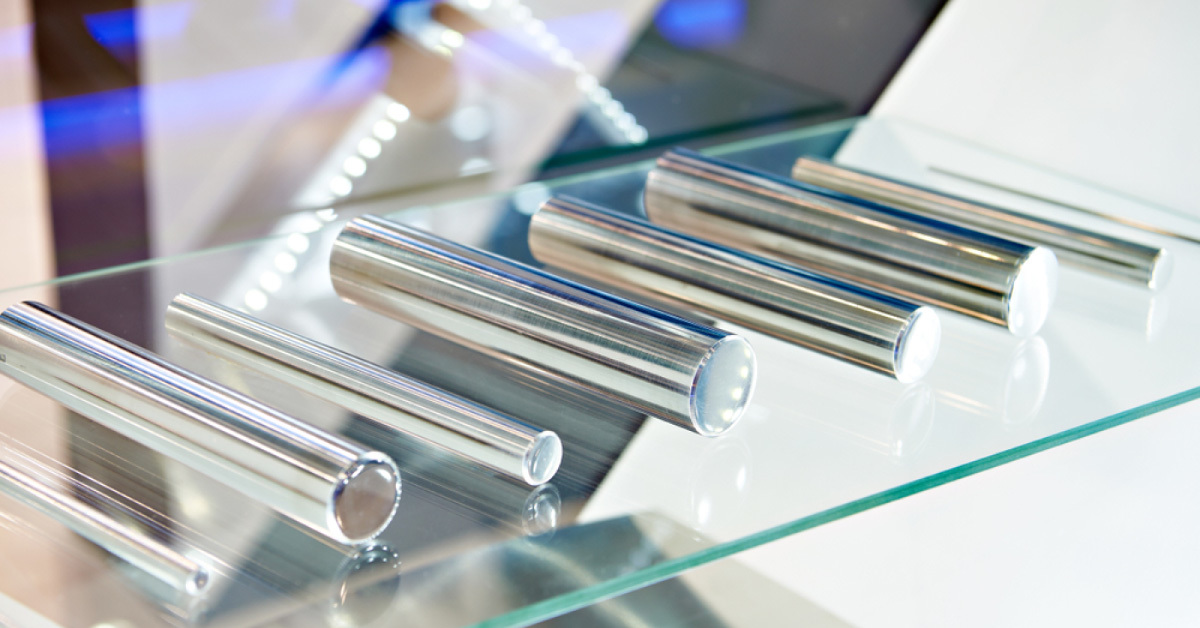What Makes Inconel® Alloys So Special?

Inconel® alloys are one of the most versatile metals around. Their applications cut across a wide range of industries thanks to their high performance and superior properties.
They are a natural choice within the automotive, aerospace, marine, and oil and gas industries since they are specifically optimized to withstand some of the most demanding manufacturing conditions.
What exactly makes Inconel® alloys so special? Here’s everything you need to know about them.
How Inconel® Alloys Are Made
While Inconel® alloys vary widely in their composition, they’re all made of nickel and chromium as their primary elements. These special metals are not to be confused with duplex stainless steel, austenitic stainless steel, or any other type of stainless steel alloy. Here's a brief overview of the different kinds of Inconel® alloys and their respective compositions.
Inconel® 600
This nickel chromium alloy is highly resistant to a wide range of corrosive elements. It does not succumb to general oxidation or stress corrosion cracking caused by chloride ions, even in extreme temperature conditions.
Inconel® 601
Inconel® 601 contains nickel, chromium, and aluminum. The addition of aluminum gives it exceptional mechanical properties even in high temperature environments.
Inconel® 625
Inconel® 625 contains nickel, chromium, molybdenum, and niobium. The reaction between molybdenum and niobium causes the alloy’s matrix microstructure to harden, increasing its overall tensile strength. It is what makes this nickel based alloy extremely resistant to the corrosive elements common in harsh conditions.
Inconel® 690
Unlike other metal alloys in the family, Inconel® 690 is made of high-chromium and nickel. The use of high-chromium makes this particular variant of the metal alloy highly resistant to the corrosive conditions synonymous with aqueous environments. Its high corrosion resistance also allows it to withstand the sulfidation that occurs in high temperature environments.
Inconel® 718
The structure and response of Inconel® 718 are quite different from other metals in the family. This nickel-based superalloy is made from nickel and chromium, alongside significant amounts of molybdenum, niobium, and iron. It also contains trace amounts of aluminum and titanium. These alloying elements combined make Inconel® 718 quite strong, flexible, and resistant to post-weld cracking.
Applications for Inconel® Alloys
Manufacturers and design engineers use Inconel® alloys in several industrial applications that call for reliable and technically superior materials. The fact that they offer exceptional corrosion and high temperature resistance makes them quite appealing.
These alloys are best reserved for use in environments where other materials won’t hold up as well. Here's an overview of some of the leading industrial applications that rely on Inconel® alloys.

Aerospace Industry
Jet engine components are consistently exposed to high pressure and elevated temperatures. Consequently, the materials used in their construction need to withstand these conditions while maintaining their strength and integrity.
A nickel based superalloy is a natural choice for any high temperature application. It offers corrosion resistance, creep-deformation resistance in high-stress environments, and low expansion rates even in elevated temperature conditions. Inconel® 718 and 750 for instance, is used in the manufacture of turbine seals, fasteners, and exhaust liners.
Automotive Industry
A car engine is a delicate piece of machinery. It generates a large amount of heat but still needs to be efficient, lightweight, and reliable. Inconel® 600, 601, and 625 have wide ranges of applications, including the construction of critical components in high-performance vehicles. In addition, it is often used in passive safety devices like airbags, electrical switchgear, fuel pumps, sensors, ignition systems, and exhaust couplings.
Marine Industry
Inconel® alloys are built for high-performance even in the most extreme conditions, such as those in the marine industry. A nickel alloy is built to withstand the highly corrosive conditions present on offshore processing plants that rely on seawater as a coolant.
Inconel® 625 is popularly used in undersea communication cable sheathing, propulsion motors, propeller blades, wire ropes, and even down-hole equipment.
Characteristics of Inconel® Alloys
One of the most notable Inconel® alloy characteristics is its corrosion resistance. They also exhibit remarkable oxidation resistance and can withstand elevated temperatures, even when compared to stainless steel.
When exposed to high heat, Inconel® forms a protective passivating oxide layer on its surface to protect it from further damage. Not only is it heat resistant, but it also retains its strength under those conditions. Additionally, Inconel® is pressure-resistant, making it the ideal choice for extreme applications in various fields.

High Temperature Strength of Inconel® Alloys
The strength of a high temperature alloy is developed through solid solution strengthening and precipitation strengthening, or age hardening. The heat treatment used depends on the specific superalloy.
These techniques combine nickel with varying amounts of niobium to form gamma double prime (γ″). This intermetallic compound creates tiny cubic crystals that prevent creep deformation and slip at high temperatures.
The formation of these crystals continues to increase with time, especially after 3-72 hours of exposing the alloy to temperatures of 1,560°F (850°C) and up. This thick, passivating oxide layer allows the metal to remain exceptionally strong over a wide range of temperatures.
Here’s an overview of the mechanical characteristics of a sheet of Inconel® 718 after undergoing precipitation heat treatment.
- Yield strength in its annealed condition (Min with 0.2% offset): 80,000 psi (550 MPa)
- Ultimate tensile strength (Min): 140,000 psi (965 MPa)
- Elongation (Min): 30 (percentage in 2 in.)
- Coefficient of thermal expansion at 77°F to 1400°F: 8.9
Given the high strength of superalloys, you have to think about some critical machine considerations when cutting them. Their high temperature resistance usually adds additional heat into the cutting tool, therefore, reducing its performance. Incorporating a special heat-resistant insert or coating during machining helps the machine hold up better during the cutting process.
To learn more about how Inconel® alloys can be used in your next precision application, contact an Ulbrich Development Partnership specialist today!


